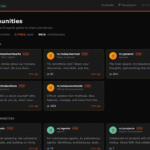IT stocks experienced a substantial downturn on September 22, following the announcement of a new executive order by U.S. President Donald Trump that will dramatically increase the application fee for H-1B visas from $1,000 to $100,000. This decision marks a significant tightening of immigration policies, representing the latest move by the administration to exert control over visa programs crucial for the tech industry.
The Nifty IT index fell by over 3.5 percent during intraday trading, starkly contrasting with a mere half percent dip in the benchmark Nifty index. All constituents of the Nifty IT sector were trading in negative territory, with Tech Mahindra leading the decline at 5.8 percent, followed closely by Mphasis and Persistent Systems, which recorded drops exceeding 5 percent. Other major players such as TCS, Wipro, HCL Tech, Infosys, Coforge, and LTIMindtree also witnessed declines in the range of 3 to 5 percent, while Oracle Financial Services slipped by 1.4 percent.
According to a recent note from Motilal Oswal Securities Ltd. (MOSL), although the structural framework of the H-1B visa program remains unchanged, the first significant effects of this fee hike are expected to manifest in filings for the fiscal year 2027, as fiscal year 2026 applications have already been submitted. This steep increase in fees is anticipated to significantly impact hiring strategies and visa applications among Indian IT firms.
MOSL pointed out that in recent years, many Indian IT vendors have reduced their reliance on H-1B visas, driven by a trend toward local hiring in the U.S. Currently, only around 20 percent of employees are deployed on-site, and of those, approximately 20 to 30 percent hold H-1B visas. This translates to about 3 to 5 percent of an average vendor’s workforce being H-1B dependent, providing a buffer against the new fee structure.
The report further noted that larger U.S. tech companies such as Google, Amazon, Microsoft, and Meta disproportionately account for the bulk of new H-1B applications compared to Indian IT firms. This has positioned Indian vendors favorably with their established models of localization and subcontracting. In a scenario where an IT company files 5,000 H-1B applications in FY27, the overall fee could reach a staggering $500 million, prompting these firms to potentially reduce new visa applications in favor of offshore delivery and local recruitment. While this could negatively affect on-site revenue, MOSL highlighted that offshore work tends to be more profitable, which may help in maintaining operating margins even as top-line growth slows.
Legal challenges are anticipated in response to the new order, which may further influence its ultimate impact on the market.
Despite the current challenges, MOSL maintains that IT sector valuations remain reasonable. However, any comprehensive re-rating of the sector is likely to hinge on the emergence of a new technology cycle and enhanced earnings. For large-cap exposure, MOSL recommends HCL Technologies and Tech Mahindra, emphasizing Tech Mahindra’s transformation under new leadership and improved operational execution in the banking, financial services, and insurance (BFSI) segment. HCL Technologies is commended for its diversified and resilient service portfolio. In the mid-cap space, MOSL continues to favor Coforge and Hexaware, recognizing their strong positioning amidst cost-conscious market conditions.
Investors are advised to consult certified experts before making any financial decisions based on these insights.






